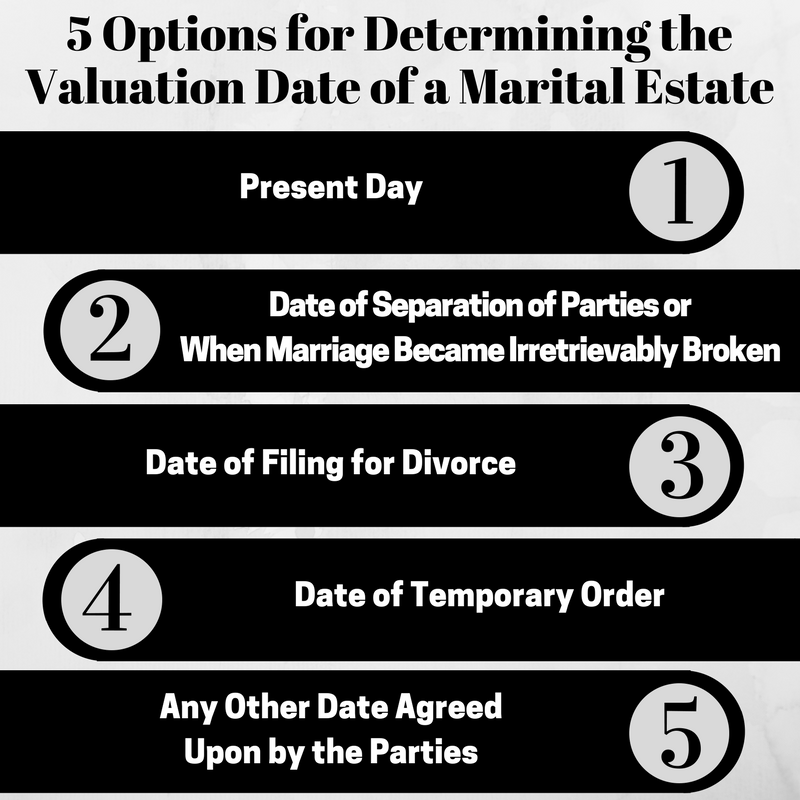A major component of a divorce in Nebraska is the division of the marital estate. The marital estate is comprised of the assets and debts acquired during the course of the marriage (except for property deemed non-marital).
But how do you know which date to use to value the marital estate?
- What if the parties file for divorce in January, but continue living together and maintain their finances together until their divorce is final in October?
- What if the parties are still married, but have been living separately (physically and financially) for the last eight months?
- What if the court enters a temporary order regarding the financial responsibilities for each spouse?
In Nebraska, there is not hard and fast rule concerning which date to use to value the marital estate. Generally, the court will value the estate based on a date that makes rational sense, keeping in mind the primary goal is to ensure the marital estate is equitably divided.
The court has these options for determining an appropriate valuation date, which is ultimately dependent upon the facts of the case.
Present Day
When parties continue to live in the same household or continue to maintain joint financial accounts throughout the divorce process, or by mutual agreement to use this date.
Date of Separation of Parties or When Marriage Became Irretrievably Broken
This date is most likely used when parties have separated their households and have divided their financial responsibilities. The valuation date can also be determined because, through the actions of one or both of the parties, it is clear that the marriage is “irretrievably broken” and that reconciliation is not an option.
Date of Filing for Divorce
When the parties, upon filing for divorce, begin to separate their household and begin maintaining independent financial accounts, the court can utilize the date of filing for divorce as a rational valuation date.
Date of Temporary Order
When the parties, pursuant to a temporary court order, separate households, start maintaining separate financial accounts and divide the responsibility for the payment of certain marital debts or by mutual agreement to use this date. This valuation date is often used if one spouse is ordered to pay alimony to the other.
Any Other Date Agreed Upon by the Parties
The parties may agree to use any date that seems reasonable. Sometimes, if the separation is toward the end or the beginning of the year they may choose December 31st for simplicity. Some parties choose a quarterly date close to the time of separation or filing for divorce, as it correlates to the issuance of quarterly financial statements.
The valuation date of the marital estate can critically impact the overall value of the estate to be divided. As such, it’s important to seek legal advice from an experienced family law attorney to ensure the valuation date selected is reasonable and financially beneficial based on the facts of your case.
Angela Lennon

